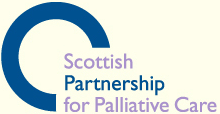- SPPC Achievements 2024-25
- Annual Conference 2025: From System Holes to Whole System
- Call for Posters
- Assisted Dying Bill - Perspectives Informed by Palliative Care
- SPPC’s response to the public consultation on the SG Strategy for Palliative Care
Poster Abstracts of the month: October
Poster Abstracts of the month: October
The SPPC Annual Conference in 2015 featured 38 poster displays, sharing work and research underway across Scotland. Each month, this blog focuses on the content of a few of these posters. This month, we focus on
- The Role of the Palliative Care Occupational Therapist in the Non-Pharmacological Management of Breathlessness
- The tide is turning.......
- Upskilling generalists in knowledge and skills in palliative care - a celebration of achievements
- Volunteering: what does it mean to children's hospices?
- What Key Elements will feature in the Ayrshire Hospice of the Future?
- Winding Road to Enhance Patients Journey
- Working Together to Promote Meaningful Connection, Hope and Job Satisfaction through the Namaste Care Programme (developed for people with advanced dementia)
The Role of the Palliative Care Occupational Therapist in the Non-Pharmacological Management of Breathlessness
Author(s): Dorothy Clark; Yvonne Laing; Loretta Comer; Kristen Bryson; Claire Howie; Vicki Lawson; Marianne Macleod
Intractable breathlessness is a common, devastating symptom of advanced cancer causing distress and isolation for patients and families. It is estimated that the prevalence of breathlessness in all cancers is between 19-64%, as death approaches the prevalence rises to 60-80%. It occurs most commonly in lung cancer where it affects up to 75% of people with primary disease of the lung, bronchus and trachea.
The primary focus of Occupational Therapy is on enabling participation in everyday activities to the best of an individual’s ability, irrespective of health or illness.
This poster draws on the experience of the Palliative Occupational Therapy team who work in NHS Fife Acute services Division. It aims to illustrate the impact non-pharmacological management of breathlessness can have on one person’s ability to engage in everyday occupations.
The tide is turning.......
Author(s): Irene Stevens; Fiona Irvine
A collaborative approach to plan, develop and deliver a bespoke training package for Care Home staff to support a new pilot under the Integrated Care Fund Ideas and Innovation scheme, to provide an Enhanced End of Life Care service in a Care Home in NHS Ayrshire and Arran. The rationale for the service was to enable local residents with end of life care needs the opportunity to be cared for as close to home as possible when remaining in their own home was no longer a viable option. It was crucial that staff felt prepared and equipped to support this service hence the need for a robust training programme. Whilst the new service was the basis for the project the benefits were far greater. Participants experienced a wide range of teaching strategies and trained staff had an opportunity for experiential learning with specialist palliative care teams. Two members of the care home staff had previously undertaken a Macmillan funded education programme on palliative and end of life care and are supporting staff to transfer their skills from the classroom to clinical practice in the role of mentors. Undoubtedly, this will be beneficial for the longer term sustainability of the project.
Upskilling generalists in knowledge and skills in palliative care - a celebration of achievements
Author: Josaleen Connolly
The education project in palliative care started July 2011 and will end in October 2015. This project was funded by Macmillan Cancer Support and enabled each participant to undertake a level 9 module in Practical Palliative Care with University West of Scotland and a 5 day placement shadowing various members of specialist palliative care teams in hospital, the hospice and in the community. On completion of the education programme each participant was supported to undertake a small improvement within their own workplace that showed evidence of their new learning and experiences in palliative care being put into practice.
A total of 91 participants were recruited to the education programme and of these 83 people completed it; 71 people initiated small improvement projects related to palliative care and so far 51 of these have been finished.
As the project approaches its end in October, individuals have achievements to be celebrated but continued efforts are needed to update those involved and those who didn’t participate in the current knowledge and skills to care for those in need of palliative care. Therein lies the challenge for the future.
Volunteering: what does it mean to children's hospices?
Author: Dr Ros Scott
This poster reports on children’s hospice data from a research study exploring the influence and impact of volunteers on UK hospices.
Purpose: Using an innovative theoretical model of volunteering impact the purpose of the research was to explore the influence of:
- Volunteers on key aspects of the service
- The differing perceptions of different groups on volunteering and its meaning to the hospice.
Method: Three self-administered online questionnaires were developed, one each for trustees, senior staff and volunteers in UK independent hospices.
Findings: Findings indicated that volunteers were considered to be an integral part of the staff team and were seen as important, not only to the care of children and young people, but also to supporting families. Their contribution was inextricably linked with the financial success of the organisation and they were perceived to have a key role in helping to make children’s hospices more accessible. There was a clear commitment to further developing their involvement in the care and support of children, young people and their families.
Conclusions: Volunteers are in essential part of children’s hospices and their influence and impact is significant at all levels of the organisation.
What Key Elements will feature in the Ayrshire Hospice of the Future?
Author(s): Shona Hynd; Kirsty Cornwall
It is acknowledged that our current accommodation at Ayrshire Hospice will not adequately meet our needs and enhance the service we provide into the future. The poster summarises the first stage of an accommodation needs review currently ongoing at Ayrshire Hospice. A person-centred approach was adopted involving patients, families, paid and voluntary staff. The importance of correlating quantitative and qualitative data was recognised and a mixed methodology was adopted using questionnaires face to face interviews and a focus groups. Opinions were sought from in-patients, day services patients, community patients, family members, as well as paid and voluntary staff. The data reinforced the vision of a building that is easily accessible, iconic, welcoming, calming and uplifting. There was a resounding desire for enablement, choice and person centred care with patients controlling their own environment within a single or shared bed space. The next step in this project will be the appointment of a project management team, who will be tasked with providing a full options appraisal. The findings of this, together with the data already collated by the initial scoping stage, will inform the decision making process as to how the Ayrshire Hospice of the future will look and feel.
Winding Road to Enhance Patients Journey
Author: Morag Lyell
Overview of Macmillan funded TCAT project involving lung cancer patients who are for best supportive care. Highlighting aims of the project and quotes from patients prior to TCAT commencing It contains one photograph and 3 logo's and the remaining part is text.
Working Together to Promote Meaningful Connection, Hope and Job Satisfaction through the Namaste Care Programme (developed for people with advanced dementia)
Situation: Despite the increasing incidence, challenge and cost of dementia care, questions remain about how to improve the quality of living and dying for people with end-stage dementia. In response, ACCORD Hospice has been involved in exploring the impact of Namaste Care™ since 2011.
Background: Namaste Care™ is an emerging multi-sensorial model of palliative care designed to improve the quality of life for people with advanced dementia. It has been demonstrated to: facilitate moments of meaningful connection and engagement between people with end stage dementia and others; promote hope among family members; and increase job satisfaction among care staff.
Assessment: As a result of Accords’ project work local interest in Namaste Care™ was high, but knowledge and understanding was low. Therefore an experiential course (with a placement opportunity) was developed by ACCORD Hospice.
Result: The first four day course was delivered in partnership between ACCORD Hospice, The Ayrshire Hospice and Adams House Care Home in 2014. This resulted in two further Namaste Care™ programmes being launched in care homes (with hospice support). Two more courses are planned over the next 12 months (with the support of Adams House in Renfrewshire and Abbotsford Care Home in Ayrshire). The projection for 2016 is: three new care home programmes to launch in Renfrewshire (with educational support from ACCORD Hospice) and two more programmes to launch in Ayrshire (with educational support from The Ayrshire Hospice). Ayrshire sites include a learning disability unit and a mental health care setting for people with dementia.


